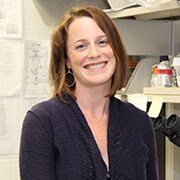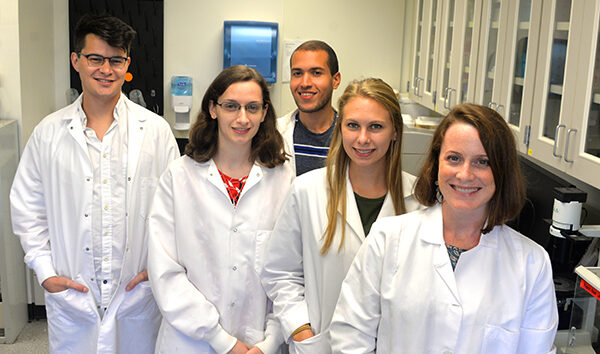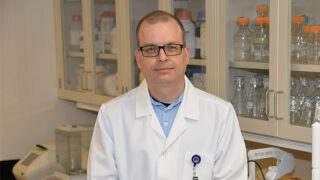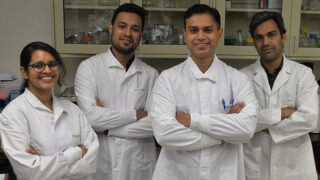Join Our Team!
We offer PhD and MS degrees with a concentration in Immunology & Microbial Disease. The program is research-oriented with strengths in the areas of immunology, bacterial and viral pathogenesis, and control of cell growth.
Our small faculty-to-student ratio facilitates one-on-one interactions on a daily basis both in the laboratory and the classroom. Many of our research activities involve collaborations with investigators in other research programs at Albany Medical College, as well as other universities, research institutions, and corporations.
Our research is supported by grants from the National Institutes of Health, Department of Defense, American Lung Association, the biotechnology industry, and more.
PhD & MS Programs
Students enrolled in the MS program typically take two to three years to complete the requirements. Students typically require five to six years to complete the requirements to obtain a PhD degree.
Course of Study
The bulk of the didactic work is completed by the end of the first year. Graduate training begins with a common fall semester program required of all first year graduate students. This includes core courses in cellular and molecular biology that provide foundational material in a literature-based format for more advanced study in the spring and in subsequent years. During the first semester, students also take a biomedical sciences colloquium that involves in-depth discussions of current literature that are complementary to course lectures.
During the spring semester, students take an introductory courses in immunology, microbiology, and virology. They also participate in weekly meetings where they present research papers and the results of their ongoing thesis work. In the second and third years, students select a series of advanced courses consistent with their thesis research.
Beyond the Classroom
Major emphasis during the first year is placed on completing a minimum of three research rotations in preceptor laboratories. Each rotation is 10 to 11 weeks and is graded Pass/Fail. The rotation period is not intended to be a techniques course. It is specifically designed to teach the scientific method, as well as:
- Identify a dissertation advisor
- Gain exposure to various techniques used in immunology and microbial disease research
Students also participate in a weekly Visiting Scientist Lecture Series, the Biodefense Seminar Series, and the annual Upstate Immunology Conference in Cooperstown.
After Graduation
Graduates of our program go on to work or study in various careers related to immunology and microbial disease.
Here is just a small sample of what some of our recent grads are doing:
- Professor, Department of Immunology, University of Pittsburgh
- Scientific Program Manager, Oregon Health Sciences University, Vaccine and Gene Therapy Institute
- Laboratory Manager, Chicago Medical School
- NASA Support Scientist
- Research Fellow, Boston Children's Hospital
- Director of Complex Spine, University of Missouri School of Medicine
- Postdoctoral Fellow, UMass Medical School
- Principal Scientist, Merck & Co., West Point, Penn.
- Postdoctoral Fellow, The Pulmonary Center, Boston University
- Chief Scientific Investigator, Harvard Medical School
Contact Us
Feel free to reach out with questions:
Graduate Studies Program
[email protected]
Department of Immunology & Microbial Disease
Albany Medical College
47 New Scotland Ave., MC-151
Albany, New York 12208-3479
518-262-6750
Fax: 518-262-5748
Upstate New York Immunology Conference
Each fall, we host the Annual Upstate New York Immunology Conference (NYIC) at a resort location near Albany. The goal of this meeting is to foster collaborations and interactions among participants and their institutions, as well as provide opportunities for postdoctoral fellows and graduate students to present their research. For more information, email [email protected]. Check back here for more information as we get closer to the 26th annual conference.
Seminars
We host regular seminars on topics of interest to immunologists and students. Check the Events Calendar for more information.



